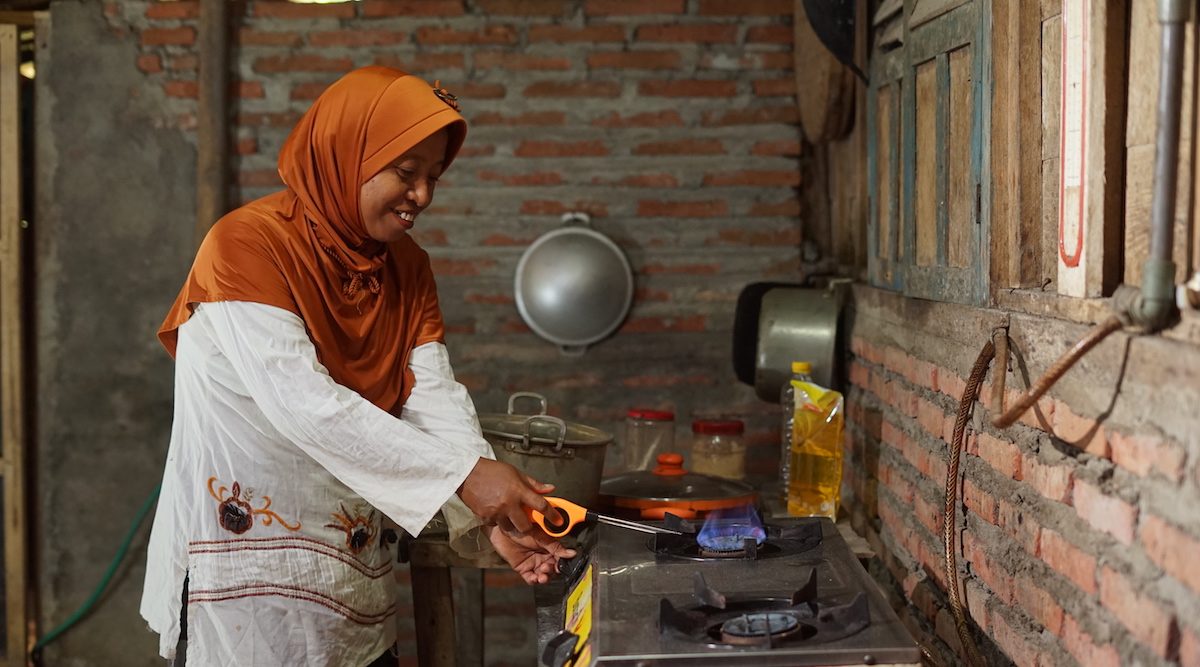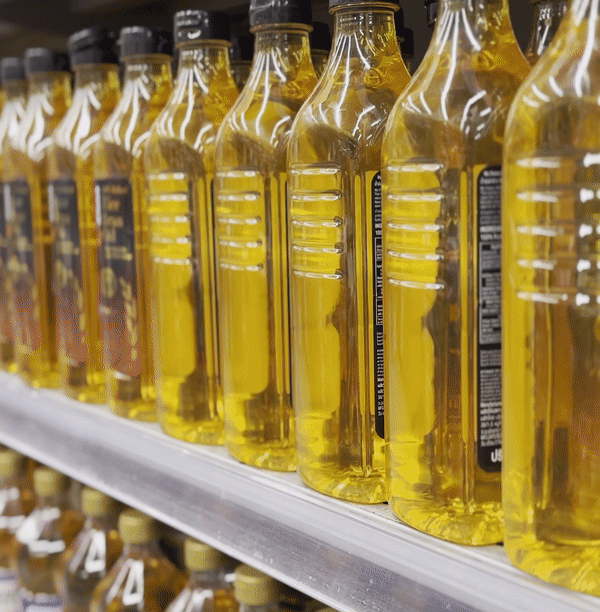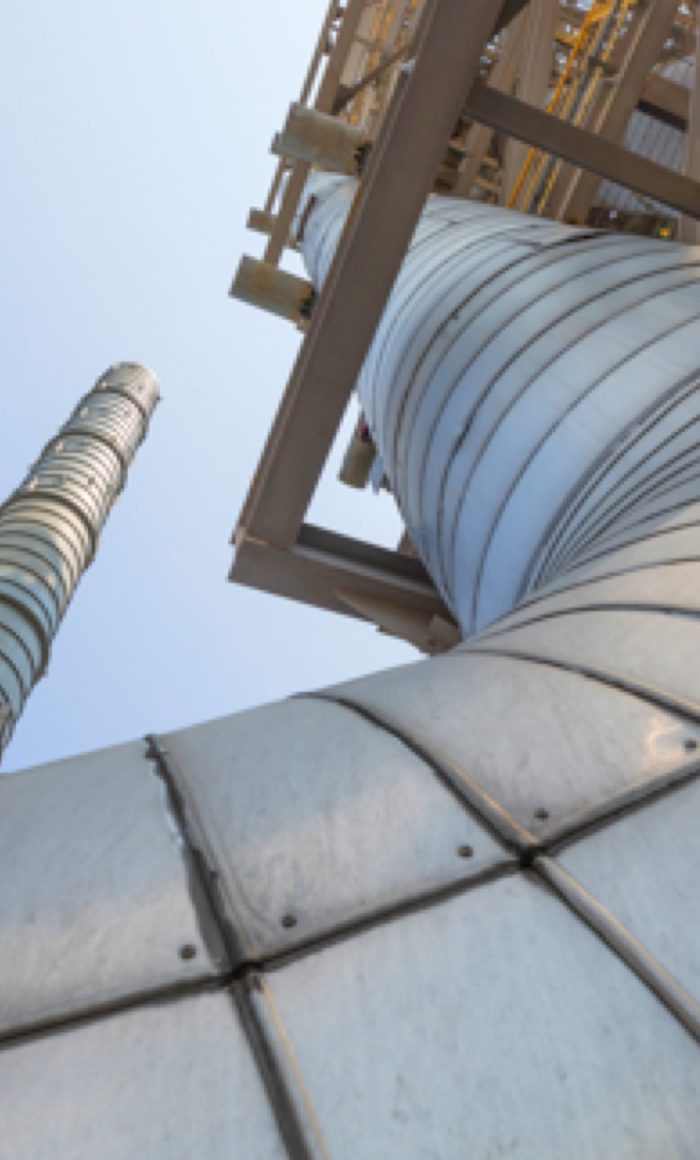For Endang, a caterer in the small Indonesian village of Gayam, the stove is an indispensable tool for her livelihood, but only if she has a reliable and affordable source of energy to power it.
In an area mostly dependent on wood and kerosene for cooking and lighting, Endang and other families are enjoying a newfound security of consistent energy via a biogas program developed by the nonprofit group Yayasan Trukajaya and ExxonMobil Indonesia.
“The program has changed my life significantly,” Endang said. “Not only have I gained free access to gas for my daily cooking, but it has also made my catering business more efficient and enabled it to grow and create jobs for others.”
That sense of growing economic independence is what ExxonMobil has supported in Indonesia for years, specifically through using renewable biogas energy as the fuel for new opportunities.
Villagers and farmers in the Bojonegoro region are using biogas reactors that produce methane gas generated from livestock manure through an anaerobic breakdown. The reactors, installed in backyards and barns, cost nothing to maintain, making them an affordable alternative to costly kerosene. Methane also burns cleaner than traditional firewood, which releases heavy smoke and ash into the air.
The initial program rollout has created a momentum that continues to build with each new success story. Take Sutarman, for example, a 57-year-old farmer. Sutarman sells quail eggs, but must first boil them, using the methane as fuel for his stove.
Instead of using cow manure to create the methane, however, Sutarman, uses quail waste – essentially creating an endless economic and environmental cycle with that one reactor.
“I never thought that breeding such birds can generate a safe, environmentally friendly and free fire,” he said. “It’s very profitable for a small business like this.”




